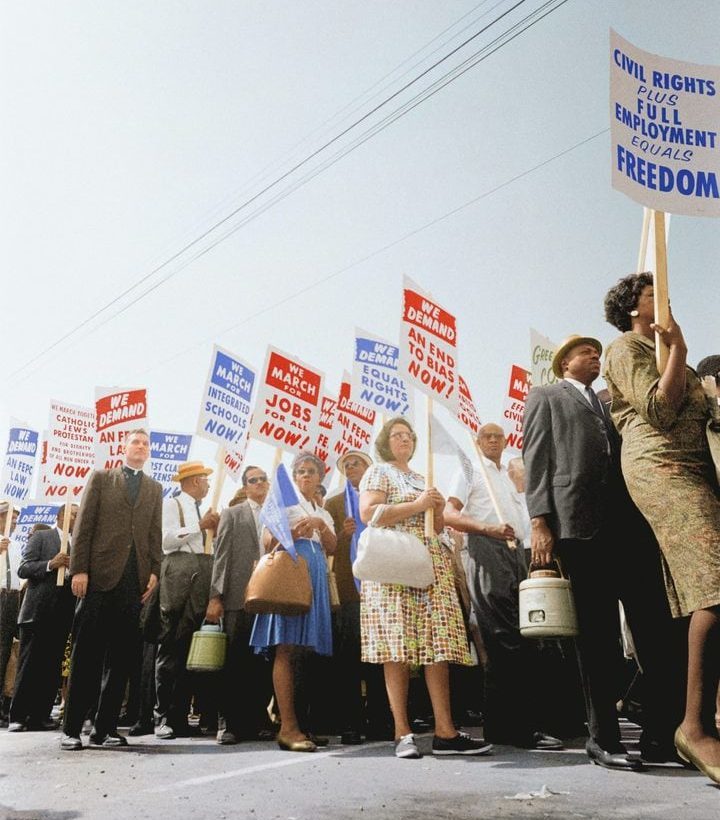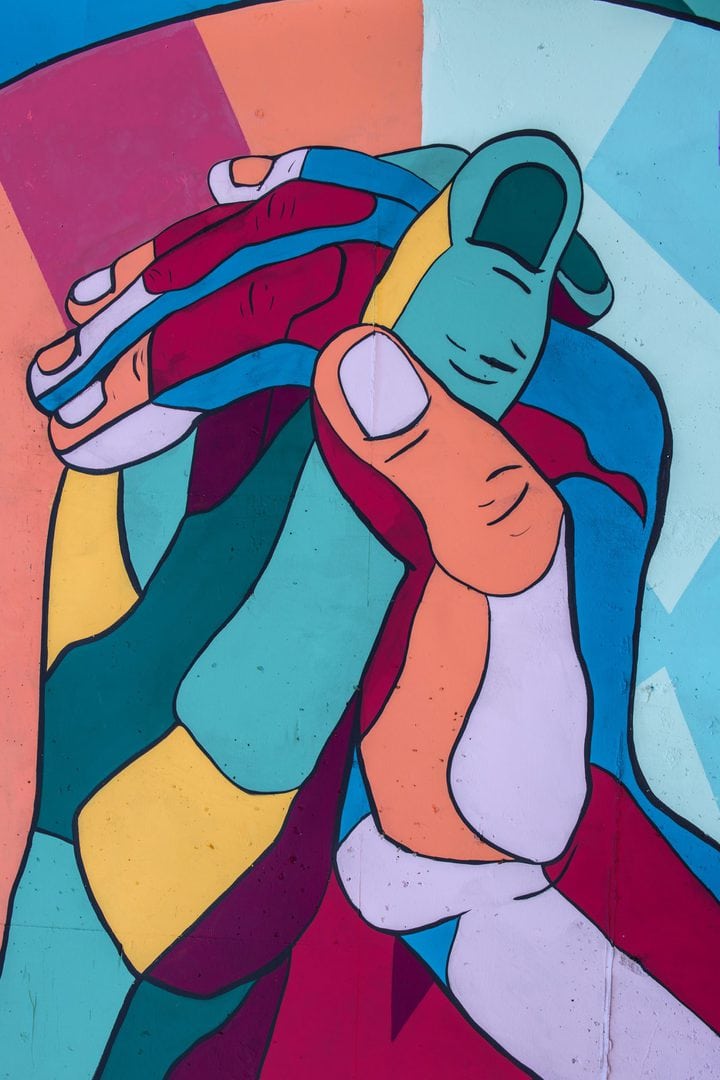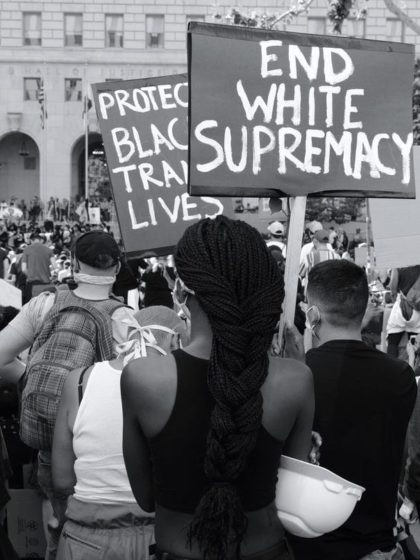At the center of nonviolence stands the principle of love. The nonviolent resister would contend that in the struggle for human dignity, the oppressed people of the world must not succumb to the temptation of becoming bitter or indulging in hate campaigns. To retaliate in kind would do nothing but intensify the existence of hate in the universe. Along the way of life, someone must have sense enough and morality enough to cut off the chain of hate. This can only be done by projecting the ethic of love to the center of our lives. – Martin Luther King, Jr.
In his search for justice King used the tools of nonviolent resistance.
The United States was in a social crisis during the 1960s. Violence threatened the very fabric of American culture. Although the civil war abolished slavery 100 years earlier, the war could never promise what was far more important: To change the hearts and mind of a people from racism to full participation in a loving community. For that, humans need something more powerful than guns, tanks, and bombs. We need love.
Martin Luther King, Jr. grew up experiencing the evils of racism first hand. He was born in 1929 to parents who were sensitive to the dehumanizing practices of segregation, yet they instilled a deep sense of love, compassion, and justice in the young Martin. King wrote that his parents “were highly significant in determining my religious attitudes. It is quite easy for me to think of a God of love mainly because I grew up in a family where love was central and where lovely relationships were ever present” (The Autobiography of Martin Luther King, 2).

In his letters to friends and family, we find that King’s parents taught him about his own God-given goodness, and about the God-given goodness of others, even his enemies. From his mother, King learned about the promise of America, that, as Thomas Jefferson decreed, “We bear these truths to be self evident, that all men are created equal . . .”
But King also learned about the inconsistencies of US history: that the United States was built on slavery – even Thomas Jefferson owned slaves. And after slavery, Jim Crowe Laws enforced the false belief in “separate but equal.” Institutionalized racism was meant to give white folks a feeling of superiority, and black folks a sense of inferiority. King’s mother made it clear to him that “she opposed this system and that [he] must never allow it to make [him] feel inferior” (The Autobiography, 4).
The Olive
Branch
Take A Breath with Us
Our weekly newsletter creates a space to take a breath. Once we slow down, we can see the way desire, imitation, and conflict operate in our lives and in the world, and begin to create peace. In addition to the newsletter, you will receive the free "Unlearn the Bible" ebook when you subscribe.

Those lessons from his childhood set King on a hopeful mission to transform the violence within American culture. He knew that his battle was with a culture of violence, not with individuals. In his search for justice King used the tools of nonviolent resistance. He stated that nonviolent resistance is “directed against forces of evil rather than against persons who happen to be doing the evil. It is evil that the nonviolent resister seeks to defeat, not the persons victimized by evil” (A Testament of Hope, 18). Evil and violence were two sides of the same coin that infected American culture. The antidote was to hope in the transformation of his enemies, and of himself, by proclaiming the inherent goodness endowed to human beings by God. King proclaimed his own goodness in spite of America’s culture of hate, violence, and institutionalized racism directed against him and others in his community. More radical than proclaiming his own goodness, though, King also asserted the goodness of those who sought to kill him.
While serving as a pastor at a church in Montgomery, Alabama, King was nominated to lead a newly formed protest group in Montgomery. It was called “The Montgomery Improvement Association.” King took the leadership role, which made him a high-profile target for his enemies.
While attending a meeting one month after the group was formed, his house was bombed. When King heard of the bombing, his thoughts went to his wife, Coretta, and their baby, Yolanda, who were home that night. Fortunately, when he arrived home, they were not harmed.
Within a few hours of the bombing, a crowd formed outside the house. Individuals in the crowd began calling for violent retaliation as they imitated each other’s desire for revenge in support of King. This imitation rallied the mob into a violent frenzy, where nothing can satiate the discontent of the mob except violence. King knew that as the leader, he had to calm down the crowd, so he went outside and delivered an impromptu speech that would sum up his commitment to love and nonviolence.
We believe in law and order. Don’t get panicky. Don’t do anything panicky at all. Don’t get your weapons. He who lives by the sword will perish by the sword. Remember, that’s what God said. We are not advocating violence. We want to love our enemies. I want you to love our enemies. Be good to them. Love them, and let them know you love them (The Autobiography, 80).
King’s rationale for love and nonviolence was an attempt to follow in the steps of Jesus. Throughout his life, he reminded himself and others about Sermon on the Mount’s call to love our enemies (Matthew 5:43-48) and the arrest of Jesus (Matthew 26-36-56), which calls people to a nonviolent love in search for justice.
Some might critique King’s admonition to love and nonviolence as a naïve, unrealistic, and cowardly submission to evil. Nothing could be further from the truth. For King,
True nonviolent resistance is not unrealistic submission to evil power. It is rather a courageous confrontation of evil by the power of love, in the faith that it is better to be the recipient of violence than the inflicter of it, since the latter only multiplies the existence of violence and bitterness in the universe, while the former may develop a sense of shame in the opponent, and thereby bring about a transformation and change of heart – (The Autobiography, 130).

Martin Luther King, Jr. reminds us that no exemplar is perfect (see the work of Michael Eric Dyson below), but King also reminds us that love and nonviolence are the keys to the transformation of American culture. He called his vision for this transformed culture “The Beloved Community.” The Beloved Community had a deep commitment to justice, but it was justice based on the hope of reconciliation, not revenge. Violence can never bring about the transformation necessary for reconciliation. Nonviolent love provides the only hope for that kind of cultural transformation.
For further reading see:
John Ansboro, Martin Luther King, Jr.: Nonviolent Strategies and Tactics for Social Change. Lanham, MA: Madison Books 2000.
Carson, Clayborn, ed. The Autobiography of Martin Luther King Jr. New York: Warner Books, 1998.
Dyson, Michael, I May Not Get There With You: The True Martin Luther King, Jr., New York: Touchstone, 2000.
King, Martin Luther, Jr. Strength to Love. Philadelphia: Fortress Press, 1963, 1981.
Washington, James, ed, A Testament of Hope: The Essential Writings and Speeches of Martin Luther King, Jr. Harper Collins, 1986.
On the Web see: http://www.religion-online.org/showarticle.asp?title=1603 for a great commentary on King’s “Beloved Community.”
Please purchase from your local independently owned bookstore.
